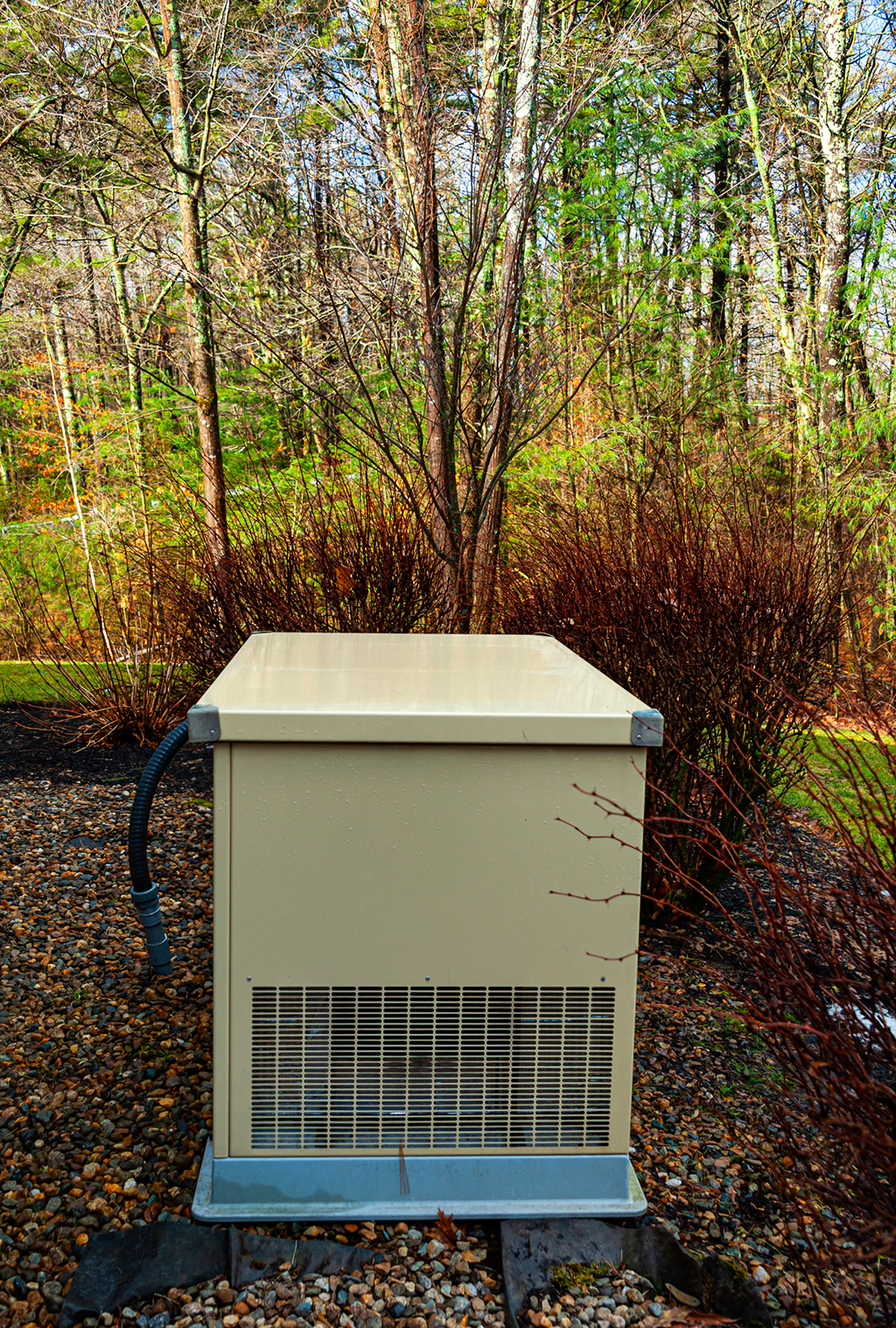
What’s The Difference Between Standby Generator Installation And A Portable Generator? | Dillon, SC
Photo By sphraner at istock
Dillon, SC residents considering generator installation should understand the difference between standby and portable generators before purchasing a generator. Although both generator types perform the same functions, they offer a stark contrast when it comes to convenience, maintenance and cost.
Facts About Portable Generators
Most portable generators run on gasoline but a few use diesel fuel or liquid propane. You will need to hook up a portable generator to a circuit breaker panel and make sure it is full of gas when outages occur. A gas-powered portable generator uses between 10 and 20 gallons of fuel during a 24 hour period, depending on your home’s power load and generator output.
Features of portable generators:
- Power output ranges from 3000 to 10,000 watts. If you plan on powering your home appliances during an extended outage, consider purchasing a generator providing at least 7500 watts
- Generator installation services aren’t needed with portable generators but you’ll need to hook up a transfer switch on the circuit breaker panel to operate a portable generator
While portable generators are cheaper than standby generators, they have a few drawbacks that may make you consider standby generator installation instead. For example, portable generators are noisier than standbys, offer lower wattage output and require you to store at least 15 gallons of gasoline in preparation for a potential outage.
In addition, you should never run a portable generator indoors. They need to be positioned at least 25 feet away from your home. Exhaust conduit should be directed away from AC compressors, doors and windows to prevent carbon monoxide and other harmful gases from accumulating in the home.
Facts About Standby Generators
Many of our Dillon, SC clients are more interested in standby generator installation than relying on portable generators. Providing up to 20,000 watts of power, standby generators use natural gas or liquid propane to run on and are virtually maintenance-free. When an outage occurs, standby generators turn on automatically and can operate for days without refueling. They run much quieter than portable generators due to being housed in weatherproof insulation and do not need protection from rain or snow.
Advantages to having standby generator include:
- Refrigerated food won’t spoil. This is especially important in the summer when strong thunderstorms can knock out power to residents for a day or more. Within five seconds of the power going out, a standby generator kicks in and keeps your refrigerating operating without interruption.
- You don’t have to spend money for a hotel room. For some people, remaining at home without power is not an option and it’s either staying at a hotel or imposing on family or friends. With standby generation installation services provided by Mister Sparky’s expert technicians, you can remain comfortably in your home until power is restored.
- Your sump pump keeps working during heavy rain events. This area and other eastern South Carolina cities are at an increased risk for hurricane watches, severe thunderstorms and tornadoes in middle to late summer. Even minor basement flooding can cause expensive damage to your home and potentially, the foundation of your home.
- Never worry about pipes freezing when the power goes out in the winter. Just an inch of freezing rain or several inches of wet, heavy snow will down power lines and leave you in the dark for days.
- Standby generator installation may reduce homeowner insurance premiums. Call your insurance company to find out if they offer discounts for having a standby generator. Some home insurance agencies consider a standby generator as an appliance that can help homeowners avoid submitting claims when basements flood or pipes freeze due to a power outage.
Should You Invest in Standby Generator Installation? Ask Yourself These Questions
If you don’t have a generator and answer “yes” to only one of these questions, consider calling Mister Sparky to learn more about prompt generator installation services:
- Do you use oxygen or other medical devices that require electricity to run?
- Are you a senior citizen or someone with a medical condition who is vulnerable to extreme temperatures?
- Do your medications need to stay refrigerated?
- Do you have a home security system that won’t operate during power outages? (In fact, that’s when you need security systems the most!)
- Do you have an infant who depends on warmed bottles or refrigerated mothers’ milk?
- Is the area in which you reside prone to regular power outages?
Generator installation provided by Mr. Sparky’s technicians involves the following:
- Choosing a good location for the generator to be installed. The area should be stable and not prone to accumulating standing water. Standby generators should have enough room surrounding them to allow our technicians to inspect and maintain the generator. We recommend selecting a location that is at least five feet away from windows and doors and more than two feet from your home
- Enhancing the site with gravel or a small, concrete slab to stabilize the generator
- Connecting a fuel line to the generator
- Installing a transfer switch next to your home’s main circuit/breaker box
- Simulating a power outage to ensure your standby generator is working properly. We recommend testing your generator every two weeks by turning off power to your home. If the generator comes on within a few seconds of sensing no power coming in, you’re good to go!
Call Mister Sparky to Schedule a Generator Installation Consultation
Don’t wait until freezing rain, a high wind event or severe thunderstorm leaves you stranded in the dark for days due to a power outage. Stay comfortable in your home with the backup power provided by a standby or portable generator. We at Mister Sparky Generators can also help you choose the right generator for your household’s needs.

